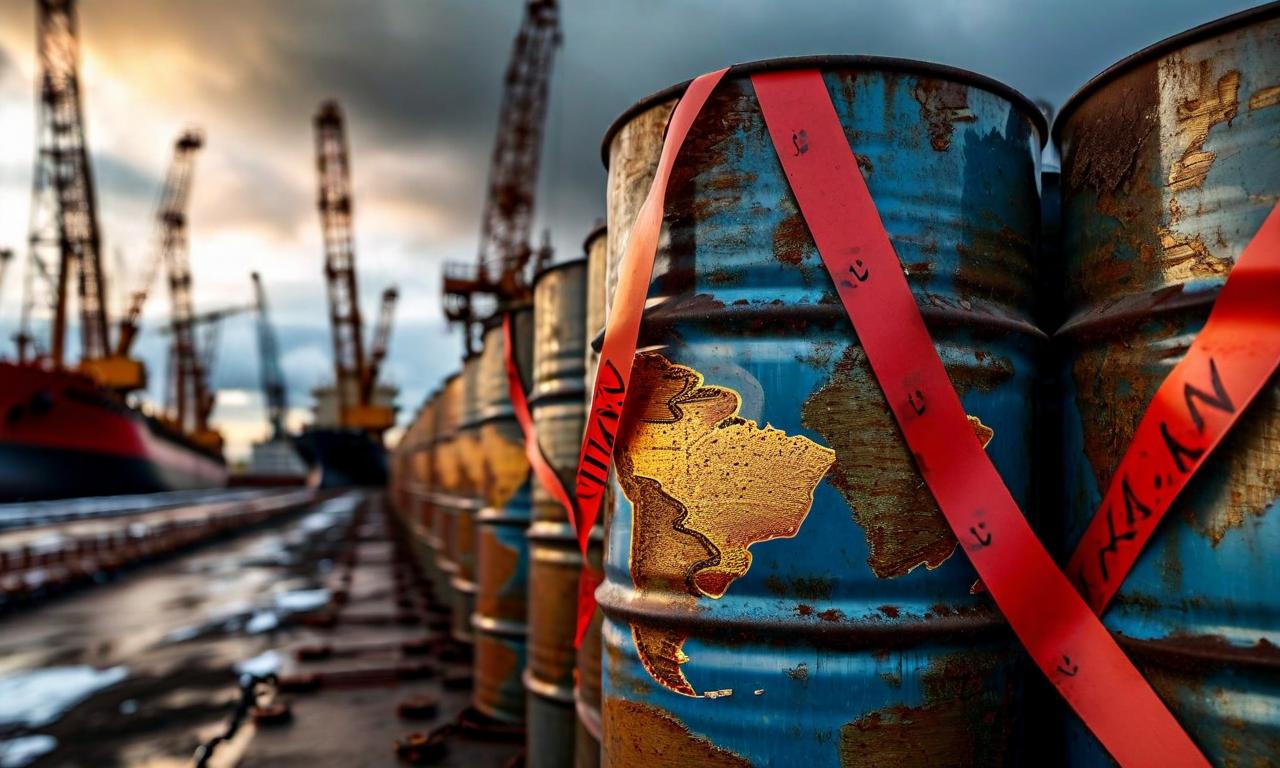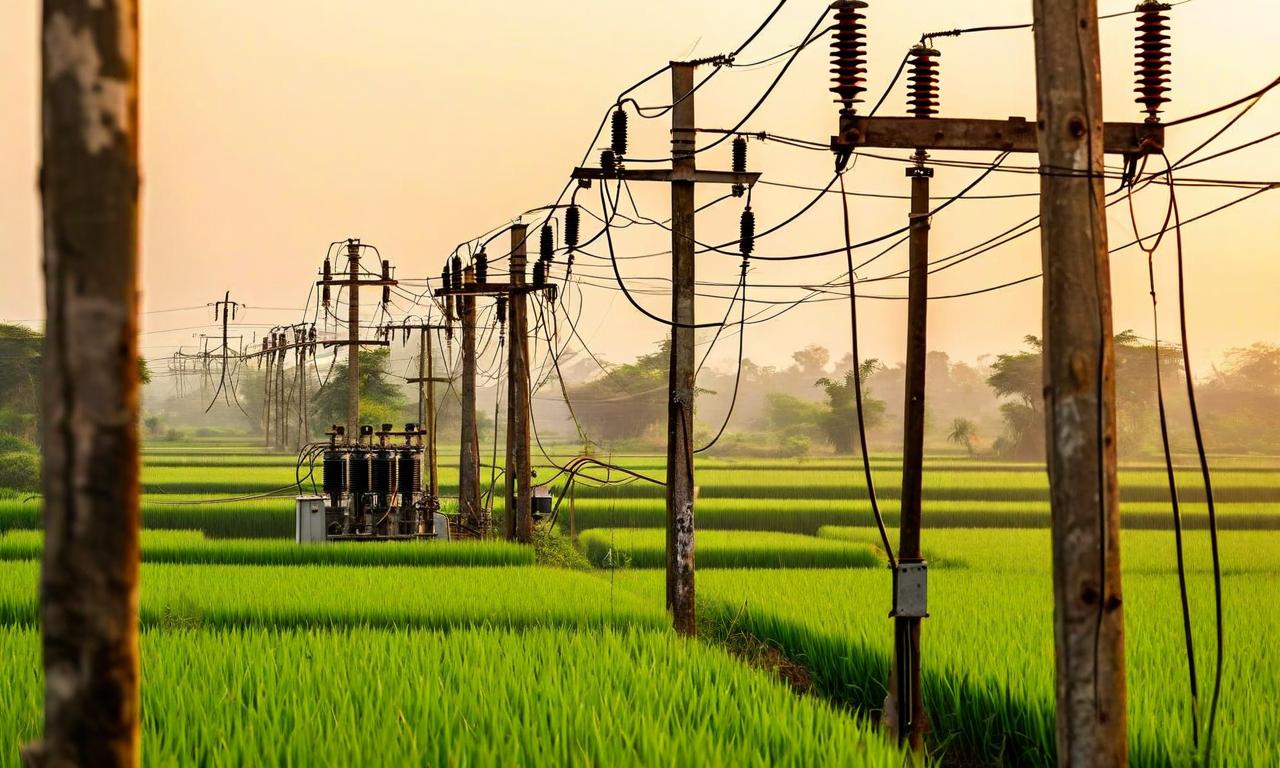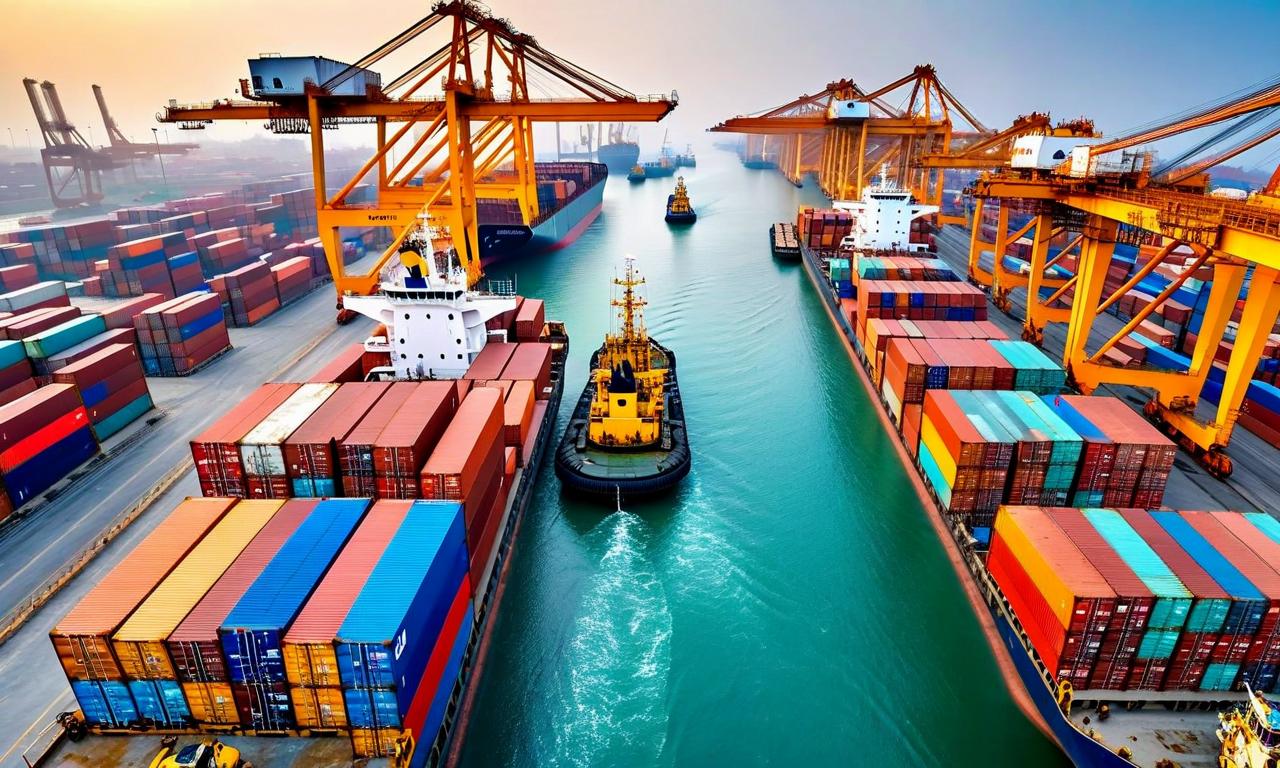Oil Sanctions Key to Pressuring Russia, Says Manhattan Venture Partners Analyst
Santosh Rao from Manhattan Venture Partners emphasizes the importance of oil sanctions in the US strategy against Russia. Oil, accounting for 20-30% of Russia's GDP, is seen as the most effective target for economic pressure. The EU's comprehensive approach, including port restrictions on Russian ships, is viewed positively. Rao compares the situation to previous Iran sanctions, noting countries often find ways to circumvent restrictions. He stresses the need for a diplomatic solution to the conflict, which continues to impact the global economy.

*this image is generated using AI for illustrative purposes only.
In a recent analysis of US sanctions strategy against Russia, Santosh Rao from Manhattan Venture Partners emphasized the critical role of targeting oil revenues in exerting pressure on the Russian economy. Rao highlighted the significance of oil sanctions as a primary tool in the ongoing economic measures related to the Russia-Ukraine conflict.
Oil: Russia's Economic Lifeline
According to Rao, oil represents Russia's most substantial economic resource, accounting for approximately 20-30% of its GDP. This makes oil sanctions potentially more impactful than restrictions on other commodities or sectors. The analyst stressed the importance of focusing on oil revenues as the key pressure point in the sanctions strategy.
Complexity of US Sanctions Policy
Rao acknowledged the intricacy of the US sanctions policy, noting that while certain sectors face restrictions, the US continues to source some materials from Russia, particularly for the fertilizer and nuclear industries. This nuanced approach reflects the complex nature of international economic relationships and the challenges in implementing comprehensive sanctions.
Effectiveness of Current Sanctions
Expressing cautious optimism about the current sanctions' effectiveness, Rao pointed to the European Union's comprehensive approach as a positive sign. He described the EU's strategy, which includes port restrictions on Russian ships, as a '360-degree view' approach to pressuring Russia economically.
Comparison to Iran Sanctions
Drawing parallels with previous sanctions against Iran, Rao noted that countries often develop alternative methods to circumvent restrictions. These workarounds can include barter systems or other means of bypassing traditional financial channels, highlighting the challenges in maintaining effective long-term sanctions.
Need for Diplomatic Resolution
Rao emphasized that both sides in the conflict require an 'offramp' to reach a settlement. He stressed the importance of finding a diplomatic solution, as the prolonged conflict continues to impact the global economy.
Implications for Global Markets
The ongoing sanctions and their focus on Russian oil exports have significant implications for global energy markets and international trade. As the situation evolves, market participants and policymakers will need to closely monitor the effectiveness of these measures and their broader economic impact.
This analysis provides valuable insights into the complex interplay between geopolitics, energy markets, and international economic policy. As the situation continues to develop, the effectiveness of oil sanctions may remain a crucial factor in shaping the outcome of the Russia-Ukraine conflict and its global economic repercussions.




























